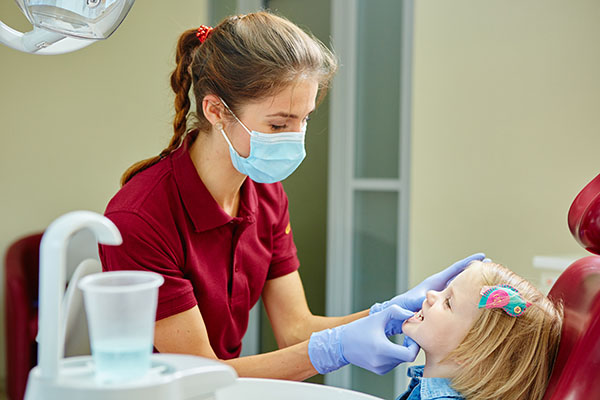 Plaque is a common pediatric dentistry issue. Brushing and flossing daily can help remove some of the plaque. Yet, without routine pediatric dentistry checkups, plaque will keep replenishing its layers. This can lead to serious dental issues for your child. If you want to know the possible outcome of unscaled plaque, here are the details.
Plaque is a common pediatric dentistry issue. Brushing and flossing daily can help remove some of the plaque. Yet, without routine pediatric dentistry checkups, plaque will keep replenishing its layers. This can lead to serious dental issues for your child. If you want to know the possible outcome of unscaled plaque, here are the details.
Tartar buildup
This sticky, translucent coating that does not stop forming on and in between the child’s teeth is dental plaque. It is a thin film of harmful bacteria. Plaque often collects along, above, and below the gumline. It will harden over time and transform into tartar or calculus.
After every snack or meal, bacteria in plaque feed. Then, these microorganisms excrete acids to weaken the enamel of the child’s teeth. The longer the food particles stay on the teeth, the more the bacteria feed. This results in more acids bombarding the enamel. As acid attacks repeat every day, the enamel weakens. Then, the formation of cavities starts.
The accumulation of tartar below the gumline can cause gum tissue inflammation. This can lead to pediatric dentistry problems like gingivitis and periodontitis (gum disease). Continuous plaque collection can lead to the structural damage of teeth, gums, and jawbone. It may also result in general health complications.
Calculus bridge
Untouched plaque hardens. It tends to affect multiple teeth. This connecting line of dental calculus is the calculus bridge. Such an accumulation cannot strip off with regular brushing or flossing. The parent should bring the child to the dentist for pediatric dentistry treatment. At the clinic, the pediatric dentist has a scaler for scraping off the calculus bridge and plaque.
Gingivitis
Plaque removal is an important pediatric dentistry procedure. Failure to remove plaque leads to gingivitis or the inflammation of the gums. The first sign of this condition is bleeding when flossing or brushing. This can lead to periodontitis if it does not get treatment.
Bad breath
Plaque accumulation can lead to halitosis or bad breath. Bacteria live in plaque. As these organisms feed, food particles break down. Even if the child brushes or flosses, food particles still stay as part of plaque and calculus. The foul odor comes from the buildup of plaque and tartar.
Cavities
Tartar is a hardened substance. It stays on the teeth. Tartar blocks the toothbrush from touching the teeth. This results in the weakening of the enamel. The openings created by tartar allow acid and bacteria to seep into the tooth. This results in cavity formation.
Tooth loss
Plaque must have a pediatric dentistry treatment. If the child’s teeth do not get regular deep cleanings from the pediatric dentist, the plaque becomes tartar. More bacteria penetrate the child’s teeth. Over time, the tooth deteriorates. It will need pediatric dentistry treatment such as dental extraction.
A pediatric dentistry check can determine if your child has plaque
Children should have good dental health. Primary and permanent teeth should always go through routine pediatric dentistry checks. Healthy teeth always lead to a healthy body. An appointment with your pediatric dentist will help make your child’s dental and general health optimal.
Request an appointment or call Bergen County Pediatric Dentistry at 201-312-6937 for an appointment in our Allendale office.
Related Posts
Though rewarding, parenting is often difficult. One of the most difficult aspects of parenting that you will encounter early in your child’s life is teething. Fortunately, a pediatric dentistry professional can help you understand what to expect and, more importantly, give you advice on how to ease your child’s pain during this challenging time in…
Pediatric dentistry focuses on diagnosing, preventing, and treating oral health concerns in children who still have their baby teeth. This review closely examines what parents and the pediatric dentistry team can do to protect baby teeth from cavities, dental trauma, and other forms of damage.Caring for baby teeth should involve brushing and flossing regularly, limiting…
Cavities are a fact of life for people of all ages. Even with routine pediatric-dentistry care, most people will develop at least one cavity by the age of 20, according to the Centers for Disease Control and Prevention. Children can be especially prone to cavities for reasons including:Diets high in sugarInability to independently clean teeth…
